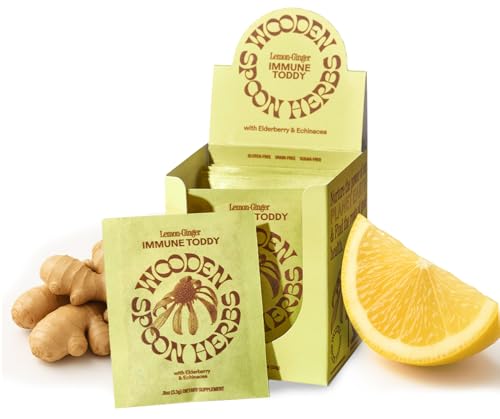Echinacea for Kids: Does It Reduce Antibiotics?
Quick Summary: A study found that giving children Echinacea helped prevent colds and reduced the need for antibiotics. Kids taking Echinacea had fewer colds and were less likely to need antibiotics compared to those taking vitamin C.
Can Echinacea Prevent Colds in Kids?
This research looked at whether Echinacea could help prevent respiratory tract infections (RTIs) like the common cold in children. The study aimed to see if Echinacea could reduce the number of colds, prevent complications, and lower the use of antibiotics.
What The Research Found
The study showed some promising results:
- Fewer Cold Days: Kids taking Echinacea had significantly fewer days with cold symptoms.
- Reduced Complications: Echinacea helped prevent secondary bacterial infections, like sinus infections, that sometimes follow a cold.
- Less Antibiotic Use: Children taking Echinacea needed fewer antibiotic prescriptions.
Study Details
- Who was studied: 160 children aged 4 to 12 years old.
- How long: The study lasted for 4 months, with a short break in the middle.
- What they took:
- One group took Echinacea (400mg of Echinaforce® Junior tablets, an extract of Echinacea purpurea) three times a day.
- The other group took vitamin C (50mg) three times a day.
What This Means For You
If your child gets frequent colds, this research suggests that Echinacea might help:
- Reduce the number of colds your child gets.
- Lower the chance of your child needing antibiotics.
- Potentially avoid some of the side effects of antibiotics.
Important: Always talk to your doctor before giving your child any new supplements, including Echinacea.
Study Limitations
It's important to keep these things in mind:
- Small Study: The study only included 160 children, so more research is needed to confirm these findings.
- Vitamin C as a Comparison: The study used vitamin C as a comparison, which also has some immune-boosting properties. A study using a placebo (a sugar pill) might give a clearer picture of Echinacea's effects.
- More Research Needed: This study doesn't tell us about long-term safety or how well Echinacea works for all kids.
- Not a Cure-All: Echinacea may not work for everyone, and it's not a replacement for seeing a doctor.
Disclaimer: This information is for educational purposes only and is not a substitute for professional medical advice. Always consult with a healthcare provider for any health concerns or before making any decisions related to your health or treatment.
Technical Analysis Details
Key Findings
The study found that Echinacea purpurea extract (Echinaforce® Junior) significantly reduced cold days by 28% (429 vs. 294 days in control), secondary bacterial complications by 49% (17 vs. 9 cases), and antibiotic prescriptions by 27% compared to vitamin C in children aged 4–12. All outcomes were statistically significant (p=0.03, p=0.04, and p=0.02, respectively).
Study Design
This was a randomized, double-blind, controlled clinical trial conducted over 4 months (two 2-month prevention periods separated by a 1-week break). The study included 160 children (4–12 years) who were randomly assigned to receive either Echinacea or vitamin C. Respiratory symptoms were tracked via parent-reported e-diaries, and nasopharyngeal secretions were analyzed using RT-PCR to confirm pathogens.
Dosage & Administration
The Echinacea group received 400 mg of freshly harvested Echinacea purpurea alcoholic extract (Echinaforce® Junior tablets) three times daily. The control group received 50 mg of vitamin C thrice daily. Both interventions were administered orally over 4 months, with a 1-week break between the two 2-month periods.
Results & Efficacy
- Cold days: Echinacea group experienced 294 cold days vs. 429 in the vitamin C group (p=0.03).
- Bacterial complications: 9 cases in Echinacea vs. 17 in control (p=0.04, 49% reduction).
- Antibiotic prescriptions: Echinacea reduced prescriptions by 27% (p=0.02).
Effect sizes were moderate, with statistical significance maintained after adjusting for age, sex, and baseline health status. Pathogen detection via RT-PCR confirmed fewer bacterial co-infections in the Echinacea group.
Limitations
- Sample size: Only 160 children were enrolled, limiting generalizability.
- Control group: Vitamin C may have intrinsic immune-modulating effects, potentially underestimating Echinacea’s true efficacy.
- Parent-reported data: Subjective symptom tracking could introduce bias, though PCR validation mitigated this partially.
- Short duration: 4-month intervention period does not address long-term safety or efficacy.
- Demographics: Participants were likely from a specific geographic or socioeconomic background (not detailed in summary). Future studies should use placebo controls and assess broader populations.
Clinical Relevance
For children aged 4–12, Echinacea supplementation may reduce RTI frequency and antibiotic dependence, offering a potential preventive strategy for parents seeking non-pharmacological options. However, the use of vitamin C as a control complicates interpretation, and results should be validated with placebo-controlled trials. Clinicians might consider Echinacea for at-risk children, but individual responses and product standardization remain critical factors. Parents should consult healthcare providers before use, especially for prolonged supplementation.
Study Link: Echinacea Reduces Antibiotic Use in Children (PubMed, 2021)
Original Study Reference
Echinacea reduces antibiotic usage in children through respiratory tract infection prevention: a randomized, blinded, controlled clinical trial.
Source: PubMed
Published: 2021
📄 Read Full Study (PMID: 33832544)


